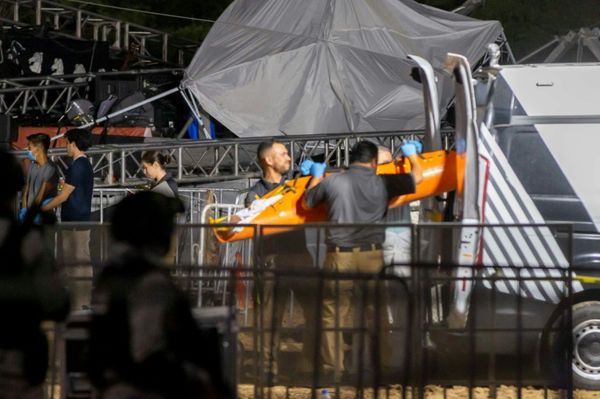WA's Department of Justice has admitted it is not sure how long it has kept some detained children and teenagers locked in their cells, as a result of shortcomings in its record keeping.
Appearing before a Parliamentary Committee this morning, Department of Justice Director-General Adam Tomison admitted the gap in the records had been realised as a result of "a number of litigations" underway, as well as the department's own "internal processes".
Those lawsuits include a class action against the state government, which has attracted more than 500 former detainees of Banksia Hill Detention Centre, and a case being run by the Aboriginal Legal Service alleging the unlawful detention of three young people.
Dr Tomison said over the last financial year, the recording of information about how long detainees were kept in their cells for – and as a result, whether the Department complied with the law – "wasn't particularly accurate".
"So we do have records of out-of-cell hours, but a lot of the time we can't actually hand on heart say they were 100 per cent accurate, and we've actually conveyed that to varying bodies including the Children's Court as needed," he said.
"So was it tracked? Yes it was.
"Was it tracked accurately? Clearly our systems weren't up to scratch compared with the level of scrutiny now required on out-of-cell hours."
A spokesperson for the Department said the issues meant records showed detainees spent more time in their cells than they did in reality.
"The Department of Justice undertook a range of corrective actions during 2022 to improve the validity of reported out-of-cell hours for youth detainees," they said.
"It had been identified that the system was over-representing the amount of time individuals were spending in their cells."
The spokesperson did not answer questions about when it realised the error or how long it affected records for.
But in a statement, Corrective Services Minister Bill Johnston said he was first advised of the issues more than a year ago, in late 2021.
"The Department of Justice has kept me regularly updated on improvements to reporting systems implemented over the past year to address those issues," he said.
Some of those issues appear to persist though, according to an answer to a question provided in parliament yesterday.
Greens MP Brad Pettitt had asked about conditions at Banksia Hill and a separate, temporary facility at the adult Casuarina Prison – Unit 18 – between August and November last year.
The answer said that while data for Unit 18 had "been cross-checked against a number of data sources and is considered accurate", a detailed response for Banksia Hill could not be given because it was "affected by known data quality issues".
In August the Supreme Court ruled the state government had broken its own laws by keeping a boy locked in a cell for up to 24 hours a day, noting the "considerable harm" it could cause.
Justice Paul Tottle found that while officers can keep detainees in their cells in very specific circumstances, "it does not extend to ordering that a detainee be locked in his or her sleeping quarters, in effect, resulting in the detainees being kept in a state of solitary confinement all day".
A key issue in both legal challenges is how much time detainees were able to spend outside their cells, and for how long they were locked up.
Reporting 'incredibly onerous'
Dr Tomison told the committee the specific level of detail required to respond to those issues had not been needed until recently.
"It's incredibly onerous because the Young Offenders Act was put in place 30 years ago, and until the last couple of years it wasn't contemplated or wasn't tested in a way that required the extreme level of reporting that's now seen as required, so it's becoming a problem for us," he said.
"The Department takes these matters very seriously and we've done a huge amount of work to try and ensure we are, one, confining young people lawfully and appropriately, and we're also recording that effectively and appropriately.
"We've actually got staff now who just do recording, which is, I don't think the best use of staff time, but it's important because of the nature of what's happening at Banksia at the moment, to sort of comply with it."
When asked if he believed all detainees were being dealt with in accordance with the law as of yesterday, he said: "I'd have to check, I'm going to assume we did."
In answer to a question in Parliament yesterday, the parliamentary secretary to the Corrective Services Minister, Matthew Swinbourn, said the Department of Justice was taking steps to replace the part of its systems currently responsible for tracking this information.
That included "diarised recording" of out-of-cell hours at Unit 18.
Mr Swinbourn's answer also revealed that between 25 August and 20 November last year, there had been 1,113 occasions where a young person had spent more than 20 or more hours in a day.
Dr Tomison did not answer questions after leaving the hearing.





